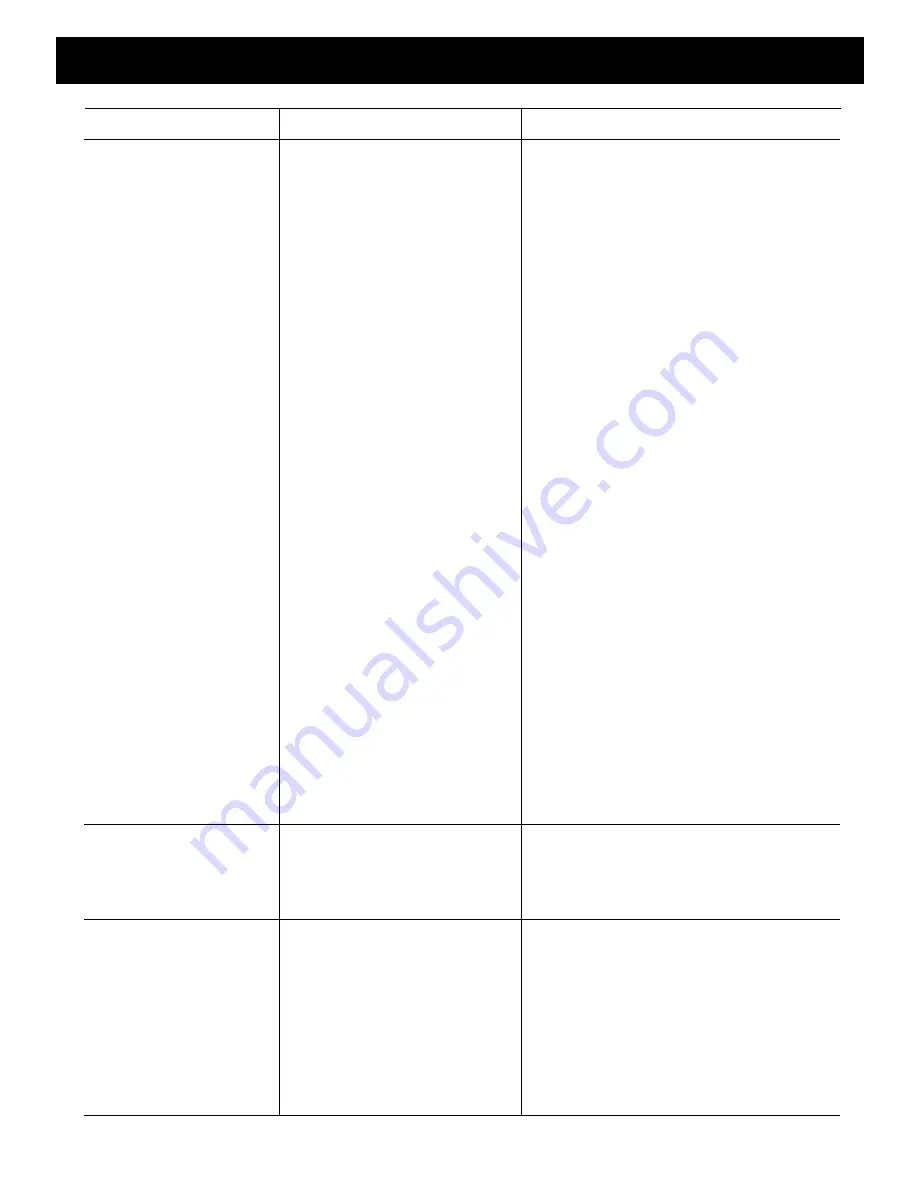
20—ENG
MGP-LN1080H2-1A Rev. 1 3/13/00
CORRECTION
CAUSE
PROBLEM
Motor will not run.
Motor overload protection switch has
tripped.
Let motor cool off for 10-15 minutes and overload
protection switch will reset automatically. If the over-
load still trips, check for defective capacitor.
Tank pressure exceeds pressure
switch "cut-in pressure".
Motor will start automatically when tank pressure
drops below "cut-in pressure" of pressure switch.
Remove and clean or replace. DO NOT OVER-
TIGHTEN.
Check valve stuck open.
Loose electrical connections.
Check wiring connection inside pressure switch and
motor terminal box area.
Possible defective capacitor.
Contact Service Center for inspection or replacement
if necessary.
Paint spray on internal motor parts.
Have checked by Service Center. Do not operate the
compressor in the spray area. See Flammable Vapor
Warning.
Possible defective motor.
Have checked by a local Service Center.
Fuse blown, circuit breaker tripped.
1. Check fuse box for blown fuse and replace if
necessary. Reset circuit breaker. Do not use a
fuse or circuit breaker with higher rating than that
specified for your particular branch circuit.
2. Check for proper fuse; only dual element time
delay fuses are acceptable. Use a Fusetron Type
"T" time delay fuse.
3. Check for low voltage conditions.
4. Remove check valve and clean or replace if it is
stuck open or closed.
5. Disconnect the other electrical appliances from
circuit or operate the compressor on its own
branch circuit.
Pressure release valve on pressure
switch has not unloaded head pres-
sure.
On an on/auto pressure switch equipped with a
pressure relief valve, bleed the line by pushing the
pressure switch to the OFF position. If valve does not
open, bend the lever until it does. If valve still fails to
bleed, replace the valve assembly.
Clean or replace air intake filter. Do not operate the
compressor in the paint spray area.
Restricted air intake filter.
Prolonged excessive use of air.
Decrease amount of air usage.
Compressor is not supplying
enough air to operate accesso-
ries.
Compressor is not large enough for
air requirement.
Check the accessory air requirement. If it is higher
than the CFM or pressure supplied by your air com-
pressor, you need a larger compressor.
Excessive belt wear.
Adjust belt tension. (See Belt Replacement.)
Loose belt/tight belt.
Loose pulley.
Check for worn keyway or pulley bore. Also check for
bent motor shaft. Replace parts if necessary.
TROUBLESHOOTING GUIDE









































